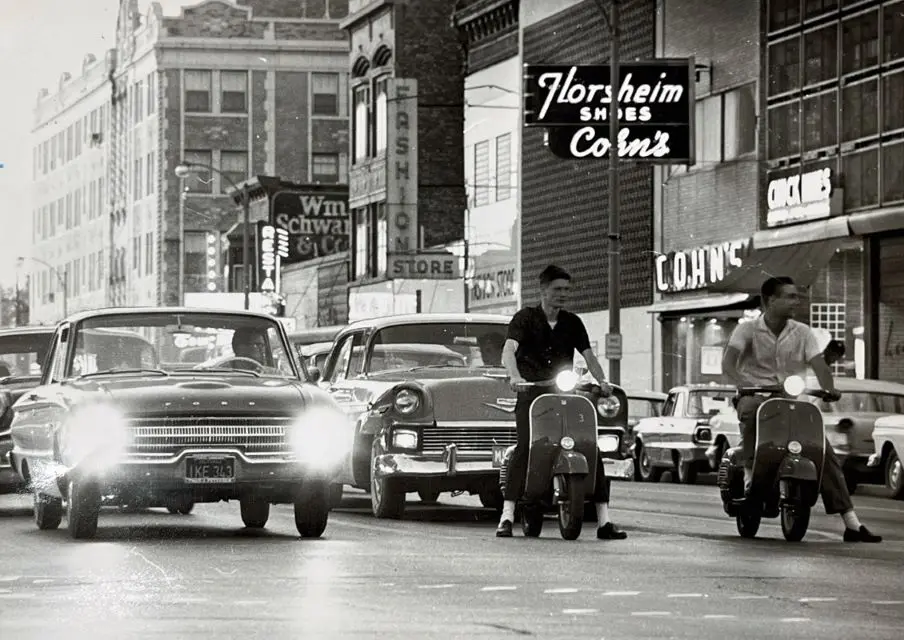10th Annual Lake County History Symposium

Plan an incredible journey through Lake County’s transportation history at the 10th Annual Lake County History Symposium, taking place January 9 and 16, 2025. This year’s theme is “Planes, Trains & Automobiles: Lake County Transportation.” Interested attendees can join remotely via Zoom from 6:30 PM until 8:30 PM each evening to experience this virtual experience—guaranteed not to disappoint history lovers!
Every evening, three presentations will be given by professional historians, authors, and passionate enthusiasts in fields ranging from local history, professional biography writing, and authorship to amateur local historians and avid local history fans. Following each talk attendees can engage with speakers during engaging Q&A sessions that serve to open dialogue while at the same time teaching something new! It’s the ideal chance to make connections while discovering something new!
Are you curious about Lake County’s past? Tickets should be secured quickly to attend this exciting symposium. Whether you’re interested in old railroads, car racing, or boats on the lake, there will surely be something of interest! Don’t delay; grab yours now!
Exploring Lake County’s Rich Transportation Legacy
Lake County boasts an engaging transportation history encompassing railroads, waterways and roadways that has left an imprintful legacy upon its development and continues to shape it today.
The Golden Age of Railroads and Their Impact
Trains transformed Lake County in the late 1800s. The Chicago and North Western Railway connected the area to Chicago, sparking growth.
New towns popped up along rail lines. Farmers could ship crops to big cities. Factories moved in to take advantage of rail access.
Old maps show the web of tracks that crisscrossed the county. Some former rail beds are now bike trails.
The railroad era left lasting marks on Lake County’s landscape and economy.
From Leisure Boating to Naval Importance
Lake Michigan draws boaters and vacationers. Wealthy Chicagoans built summer homes on its shores complete with private docks.
Public beaches and marinas made boating more accessible for more people, opening up sailing and powerboating as popular pastimes.
Naval Station Great Lakes first opened for business in 1911 and quickly evolved into the Navy’s main training facility.
Lake County saw many jobs created at this base as it played an essential role during both World Wars.
Naval aviation also took off there, with seaplanes taking part in training exercises from the lakefront.
The Evolution of Automobiles and Car Racing
Cars changed how people got around Lake County. New roads connected towns and opened up rural areas.
By the 1920s, most families owned a car. This led to new businesses like gas stations and auto repair shops.
Racing became a popular sport. The Lake County Fairgrounds hosted stock car races starting in the 1940s.
Waukegan Speedway drew big crowds on summer nights. Local drivers became hometown heroes.
Today, classic car shows celebrate Lake County’s auto heritage. Restored hot rods and muscle cars remind us of bygone eras.
Cultural Highlights and Historical Events
Lake County has a rich history filled with notable events and cultural milestones. These events have shaped the area’s identity and continue to fascinate residents and visitors alike.
Sinking of the Lady Elgin and its Enduring Legacy
In 1860, Lake County witnessed an event which has forever altered our community: the tragic sinking of Lady Elgin steamship disaster near Waukegan on Lake Michigan claimed over 300 lives when this ship capsized and submerged beneath its waves.
It led to increased maritime safety measures and inspired a famous folk song – “Lost on the Lady Elgin” – to keep its memory alive.
Local museums frequently host exhibits about Lady Elgin that help educate new generations on her significant part in Lake County history.
Historical Significance of the 1926 Eucharistic Congress
The 1926 Eucharistic Congress was a major religious event held in Mundelein. It drew over 500,000 people to the area, making it one of the largest gatherings in Lake County’s history.
The congress took place at St. Mary of the Lake Seminary. It put Mundelein on the map and boosted local tourism.
Many buildings and landmarks were built for this event. Some still stand today, serving as reminders of this grand occasion.
Mundelein’s Storied Past
Mundelein, named for Cardinal George Mundelein, boasts an interesting past. Originally called Mechanics Grove and going through various name changes over time.
Cardinal Mundelein had an immense effect on the development of Chicago. He founded St. Mary of the Lake Seminary – now one of its major landmarks – which would later serve as an economic powerhouse in his name.
Mundelein has preserved several historic structures, such as Mundelein Heritage Museum which showcases local history.
Mundelein’s history offers several fascinating details regarding local industries and famous residents; serving as a prime example of how small towns can have big stories to tell.
